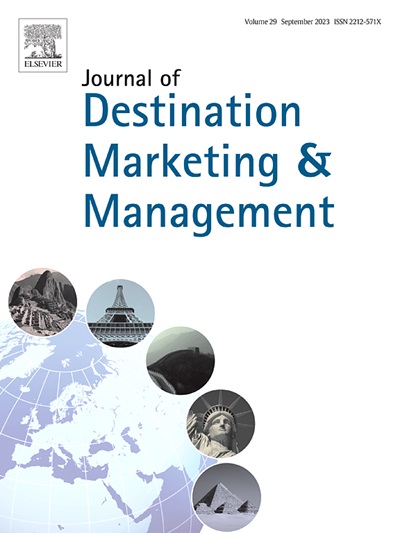How do different ski resort attributes affect skiers' positive sentiments? Evidence from China
IF 7.4
2区 管理学
Q1 HOSPITALITY, LEISURE, SPORT & TOURISM
引用次数: 0
Abstract
Understanding how ski resort attributes specifically influence positive sentiments is crucial for improving the skiing tourism experience. In this study, a framework is developed to explore the relationship between visitors' positive sentiments and the intrinsic attributes of different types of ski resorts. First, the BERT model is used to carefully evaluate the subtle differences in positive sentiments expressed by skiers at various ski resorts. The ski resort attribute evaluation indicators are subsequently constructed based on multisource big data. Finally, a random forest model is used to analyze the complex relationships between skiers' positive sentiments and the diverse attributes of ski resorts. By defining partial dependence plots, this study elucidates the key factors that influence skiers' positive sentiments at different types of ski resorts. This research, which focuses on 251 outdoor ski resorts in China, reveals the varying contributions of different ski resort attributes to skiers’ positive sentiments. These findings are crucial for improving overall visitor experience, satisfaction, loyalty, and the likelihood of return visits, thereby promoting the sustainable development of snow and ice tourism.
不同的滑雪场属性如何影响滑雪者的积极情绪?来自中国的证据
了解滑雪场属性如何具体影响积极情绪对于改善滑雪旅游体验至关重要。在本研究中,开发了一个框架来探讨游客的积极情绪与不同类型滑雪场的内在属性之间的关系。首先,使用BERT模型仔细评估不同滑雪场滑雪者表达的积极情绪的细微差异。随后,基于多源大数据构建滑雪场属性评价指标。最后,利用随机森林模型分析了滑雪者积极情绪与滑雪场不同属性之间的复杂关系。本研究通过定义偏相关图,阐明了不同类型滑雪场影响滑雪者积极情绪的关键因素。本研究以中国251个户外滑雪场为研究对象,揭示了不同滑雪场属性对滑雪者积极情绪的不同贡献。这些发现对于提高游客的整体体验、满意度、忠诚度和回访可能性,从而促进冰雪旅游的可持续发展至关重要。
本文章由计算机程序翻译,如有差异,请以英文原文为准。
求助全文
约1分钟内获得全文
求助全文
来源期刊
CiteScore
18.60
自引率
3.60%
发文量
46
审稿时长
43 days
期刊介绍:
The Journal of Destination Marketing & Management (JDMM) is an international journal that focuses on the study of tourist destinations, specifically their marketing and management. It aims to provide a critical understanding of all aspects of destination marketing and management, considering their unique contexts in terms of policy, planning, economics, geography, and history. The journal seeks to develop a strong theoretical foundation in this field by incorporating knowledge from various disciplinary approaches. Additionally, JDMM aims to promote critical thinking and innovation in destination marketing and management, expand the boundaries of knowledge, and serve as a platform for international idea exchange.

 求助内容:
求助内容: 应助结果提醒方式:
应助结果提醒方式:


